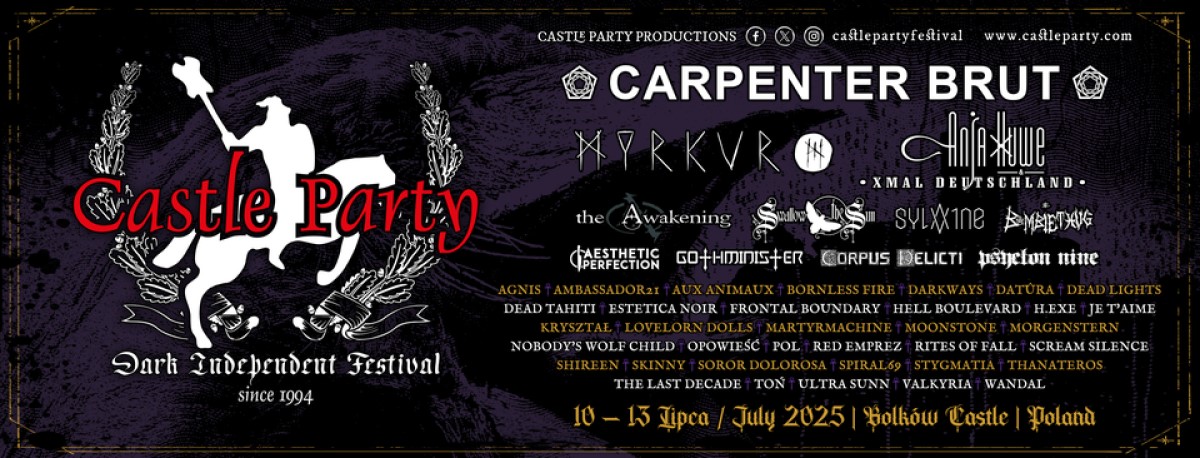Eclectic Dutch band DOOL emerged from the ashes of cult bands The Devil's Blood and Elle Bandita in 2015 and has established itself as one of the most prominent bands in the Netherlands. Known for its powerful yet catchy soundscape that is difficult to categorize, the five-piece released its third full-length, The Shape Of Fluidity, last spring via Prophecy Productions (the review is HERE). The album explores the concept of identity in a constantly changing world. DOOL debuted in 2017 with the Here Now, There Then album, followed by Summerland in 2020. Both were critically acclaimed and left a lasting impression on fans of heavy riffs. DOOL's music combines elements of dark rock, psychedelic rock, doom, progressive rock, heavy metal and post-rock, creating a captivating amalgam of sounds. In addition to its impressive recorded work, the band is also strong in live performance. We had the chance to attend DOOL's gig at Prophecy Fest (the report is HERE), which was truly stunning. Before the show, we spoke with singer/guitarist Raven van Dorst and guitarist Omar Iskander, who shared insights into their latest album, the band's journey, and also some personal things.
Interview with: Raven van Dorst, Omar Iskander
Conducted by: Tomaz, Jerneja
Edited by: Jerneja
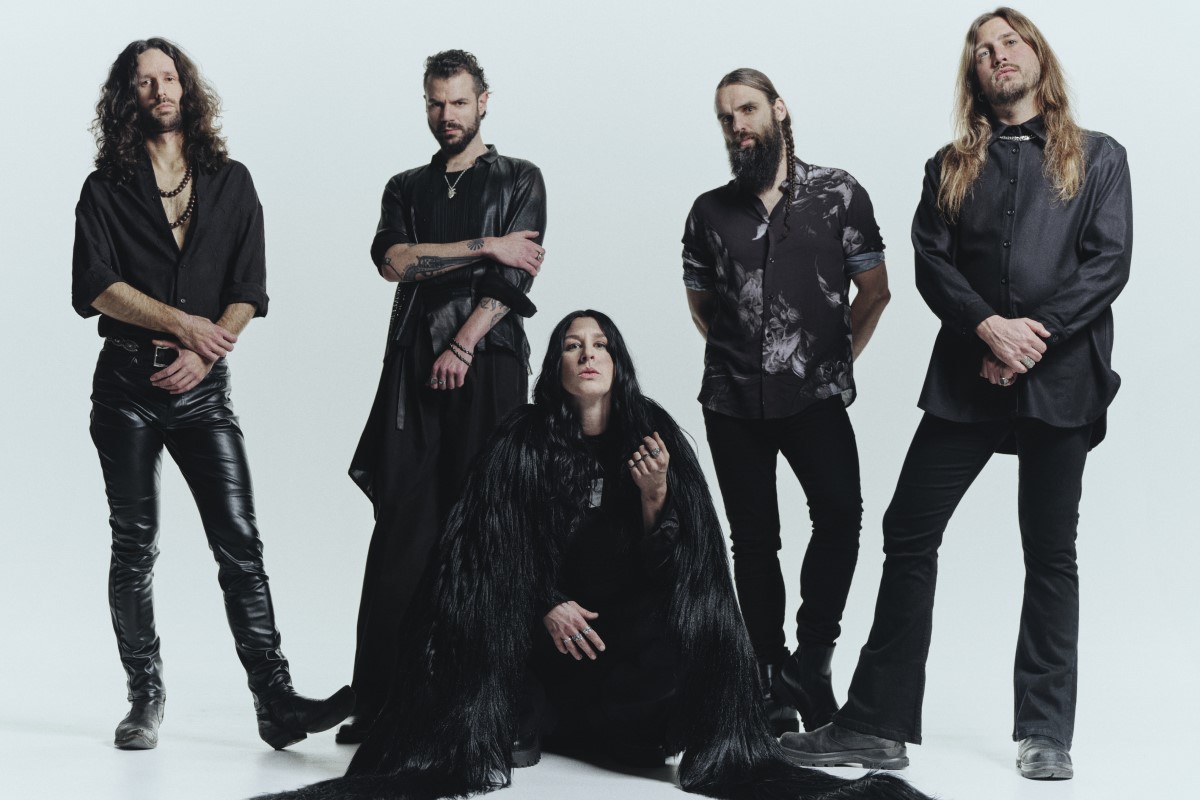
Tomaz: Hello, Raven and Omar! First of all, I congratulate you on the new album, The Shape Of Fluidity. To me, this is one of the best releases of 2024. And how satisfied are you with it?
Raven: Well, I think everyone in the band is very satisfied with the album. You know, the production turned out really great. We had a very interesting songwriting process - it was a group effort for the first time. Then to see how people reacted to see and read the reviews it was so fucking amazing. We felt good about it, too, when we were finished. It's very satisfying, for me, at least.
Omar: Definitely. It took us a lot of time and energy to do the album, but when it all comes together and you see that this is something, it's amazing. I think we certainly improved ourselves in many ways, personally and as a band. We are super happy with it.
Tomaz: How would you compare The Shape Of Fluidity with your previous one, Summerland?
Raven: Hm, like I said, this one is really a group effort, and at the same time, it's also a lot more personal. I wrote the first two DOOL albums, Here Now, There Then and Summerland, by myself. Those two albums had more global themes. Here Now, There Then is kind of an occult album, and Summerland is more esoteric - about the afterlife. These are bigger themes. The Shape Of Fluidity is a personal album; it's an album about change, identity, and my identity also, so, in that way, it differs a lot. At the same time, the whole process was a lot different than before because I wrote many songs with Omar and Nick, who evolved a lot into songwriting in the last couple of years. They grew into DOOL - if you understand what I mean. In the beginning, DOOL was mainly in my head, but now it's in everyone's heads, bodies and blood. I think that now everybody in the band understands what DOOL is. That made the songwriting process a lot more interesting.
Jerneja: The album's title is somewhat paradoxical because fluidity can not have a shape unless you pour it into something...
Raven: Yeah, that's a fun thing about the title, but you are right; that's the whole paradox behind it. It's also that you can't grasp change. I mean, change is not a thing on its own because as soon as you understand it, it's already gone; it becomes something else. This is also what this whole album embodies. Nothing ever stays the same, no one ever stays the same, and even DOOL doesn't.
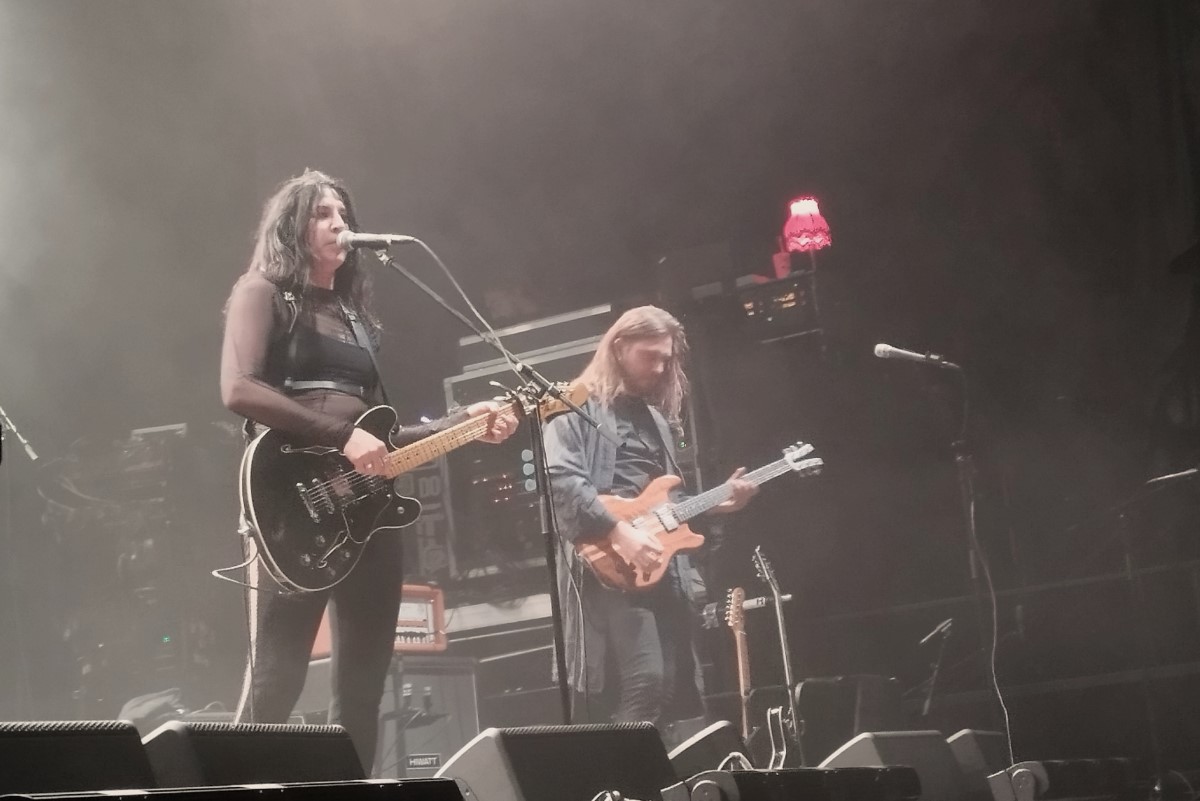
Tomaz: I'm guessing ancient Greek philosophy is behind it?
Raven: I think that you are right. Heraclitus and his saying Panta Rei, "everything flows", certainly is.
Tomaz: You had the guts to speak out about very personal things; you were born intersex and, as an infant, surgically forced to live as a girl. Why did you feel the need to do this?
Raven: Because I think there are a lot more people who deal with the same issues. I think they might recognize something, and I can help them a little. It was also the right time to talk about it. It has been a secret in me for a very long time, and I had to come out. I spoke about it with my friends and family, but there was never the right time to put it into music. It's not only about me; everybody deals with identity in a way because the world is asking so much of you all the time. You need to relate to all the topics around you and constantly ask yourself, who am I in this world, and who do I want to be in this world,... you know.
Jerneja: It is not even that rare. I read some years ago that one in a thousand people are born intersex...
Raven: It's definitely not a rare thing. As I said, many people are struggling with their identities. Sometimes, it can be hard to be your true self. This is a topic that DOOL has been on for three albums. You always want to find the truth in a way - truth in yourself, truth in a world, truth in death, magic, drugs and psychedelics. I mean, you are always trying to find something pure, something real.
Jerneja: By speaking out about your identity, I assume you felt some relief, too. On top of that, you also faced one of the too many taboos that exist in our society.
Raven: Yeah, I did. Definitely. It's very valuable, not only to people dealing with the same issues. I think that many people can relate to this album. Even though many can't really understand how it feels, they can relate in many other ways. I got a message from someone on Instagram who said, "this feeling inside you, beign both female and male in a way, I can relate to that, because I always felt that there was something missing in me, and I always felt that I was only half of something". Then he found out that his mother had twins. So he was one-half of twins, while another one was born dead, and his parents never told him. He found it out later in his life. There are many different ways in which people can relate to this album.
Tomaz: Before you released The Shape Of Fluidity, you released a live album, Visions Of Summerland, which was recorded in a church. What was it like playing in a church, and how do you feel about that album?
Omar: Well, it was a very nice church in the city centre of Rotterdam, the hometown of DOOL. It's a wooden building, so the acoustics there was very good for live music. I had a lot of debates and saw that it's a very forward-looking place. It's not a very conservative church in that way. They have many kinds of social topics, and they invite people from different sections to speak there and hold conversations, which is very interesting. All of this made a lot of sense to have a concert in that place. It was a big honour to do it. We put the whole production by ourselves and invited some artists to play. It took us a lot of effort and time to organize everything, but, in the end, we were so happy with the result. It was the last show we did to promote the Summerland album. It was such a fitting end in our hometown. The recordings turned out very well. It was also Micha's last show with us. So, it was such a big moment, and then we thought it would be perfect to capture it in a live album.
Raven: I think that it was one of the most special gigs I ever did, to be honest. After we released Summerland, we went straight into lockdown with Covid, so we didn't really get to play much of Summerland live. We only did a few shows to promote the album instead of a few hundred and a tour. I think it was only about 20 shows, maybe a little more, but definitely not as many as we used to. We felt that releasing that album was a good way to celebrate those songs because not many people have seen them live. To release that live recording was an ode to Summerland and our former drummer, Micha. It was a very special evening. There were around 600 people, and I think everyone felt the same about that night. It was really special.
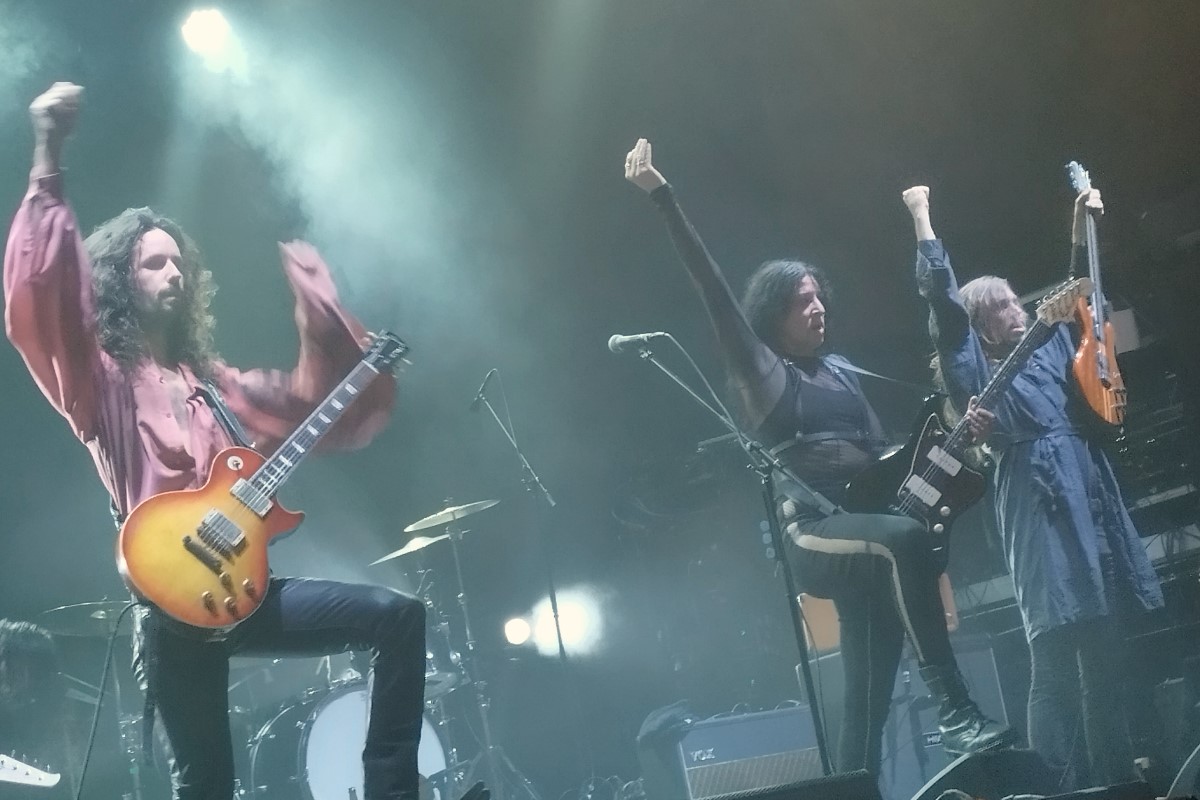
Jerneja: Did you have a hard time finding a new drummer, and how did Vincent assimilate into the band?
Raven: Finding someone new is never easy. There are many great musicians, but are they also good "family" members?
Omar: That was a hard thing. Also, we were making music with Micha for so long, even before DOOL, and, of course, it's super hard to replace somebody with who you worked for such a long time. We are also very good friends. You need to find a new person that really fits. We are close and good friends all together. It's hard to find a new friend for your friend group, haha. They don't just have to hit the right notes; you also have to have good conversations with them and spend a lot of time together in the van or the bus. It's hard, in a way, but we are very happy with Vincent.
Raven: Vincent is more than OK. He's doing great, and we're very happy with him. He contributed a lot to the creation of our new album.
Tomaz: DOOL's music is hard to define. Are the people who come to your shows mostly metalheads, rockers, goths, or...?
Omar: There are always so many different people, and that's really nice. It's cool when you see metalheads and old rockers who enjoy double guitar parts, goths, young people and a lot of queer kids. Then there are also people who are more into neo-folk or industrial, and they also find something for themselves in our music. It doesn't have to be one audience; it's nice to see them, and I really enjoy these nights.
Raven: In the Netherlands, we even played on the biggest mainstream festival, Pink Pop. Cher was headlining that day, and we played on the second stage. So, a lot of people know how to find us. I also like it - we can do this, we can't do that, and we fit everywhere, and at the same time, we don't. In a way, it's a blessing and a curse.
Tomaz: Are you perhaps already in the process of composing new songs?
Raven: Not me, personally. OK, I'm fucking around with some things, but I enjoy being on stage. We need to bring some life to our songs, and that's what we're doing now. We're on the verge of something, and some ideas are floating around, but I haven't started any new music yet.
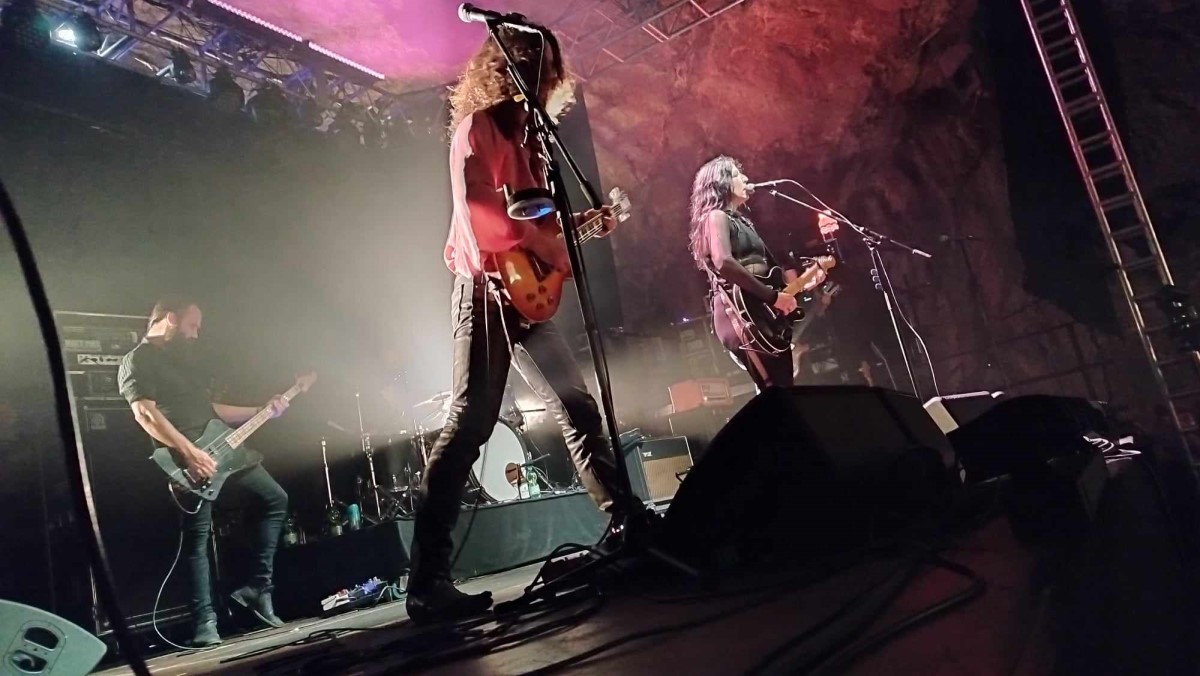
Jerneja: Do you prefer performing at big festivals or clubs?
Omar: It depends a bit. It depends on the festival or the club. The good thing about festivals is that you often feel like not many people know the band, and if at the end of the concert, you see that you have convinced people with your music, you know that you have played a good show. It can be really cool, and you play in front of a bigger crowd than in a club. But club shows can also be really nice. A club show is often very intense; it is more personal, and you can play a longer set if you are the headliner.
Raven: You can play more intimate songs in a club...
Omar: In a club, you can be very close to the people in the front row, and you don't have that distance like at festivals. It can be really cool, and you feel more energy from the crowd. It's often very personal, and it can be very cool and intimate. Both can be very cool, but they also have their downsides. It's hard for me to say which one I prefer.
Tomaz: When you started DOOL, it was always mentioned in connection with The Devil's Blood, not surprisingly, since some of you were its members, and DOOL arose from its ashes. I think that was a big plus for DOOL's recognition. How do you view The Devil's Blood today?
Raven: Of course, it's hard to escape the influence of The Devil's Blood once it's inside you. That music lives inside of me a lot. We honoured The Devil's Blood, and when we started, we were deeply influenced by The Devil's Blood, also because our entire rhythm section was in The Devil's Blood. But now I think that we found our own voice; we found our own way and our own sound. You know, I don't want to distance myself from that, but we've gone into a new direction, and that's a good thing. I still hold The Devil's Blood very dear to my heart.
Jerneja: The Shape Of Fluidity's cover is minimalist - a flag made of ice, which could convey a message about the fleeting nature of identity...
Omar: It's an artwork by the French artist Metastazis. We explained the record's theme to him and asked him to come up with some ideas. He sent a few things, but this one immediately stood out. It's a very nice conceptual idea. It works very well to explain. The flag is a strong marker of identity - for a country, city, sports club, and so on, it's something that people can hold up and say, "this is who we are". This flag is made of ice, which is very fragile. As we said before about fluidity, you pour it into a vessel, and there's a shape. It's the same with ice. It crystallizes into a shape for a moment and then melts, so it's gone again. It's telling about how fragile identity can be. You can hold it up and say, "this is who I am", but then again, it can melt away very quickly.
Raven: Something happens, and you are a different person.
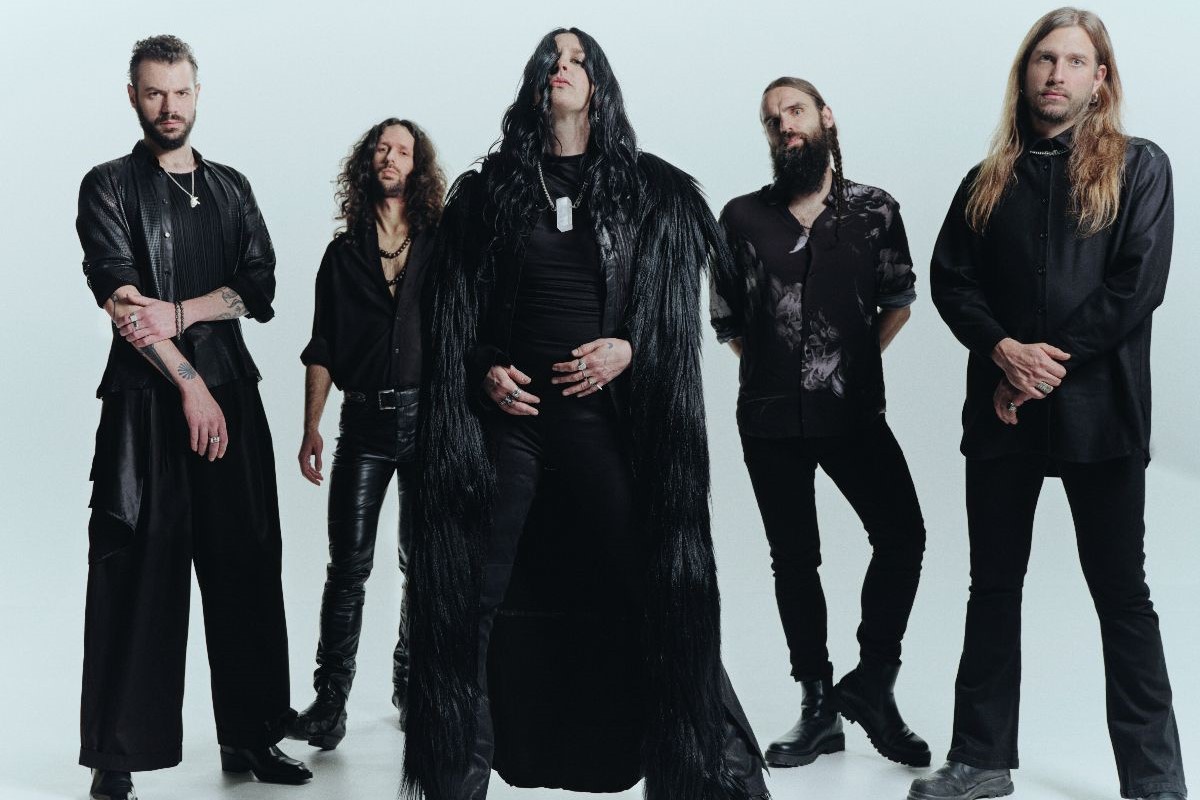
Jerneja: You have performed in Slovenia only once, at the MetalDays Festival in 2017. When can we look forward to your return?
Raven: Yeah, we played MetalDays in 2017. It was the same year Abbath played there, who rolled down the hill, haha. That icon fell... Also, there was a huge storm that came up while we were playing. When we were on a summer tour, we drove a fucking long way to MetalDays. It was a sunny day, and we went swimming on the way. Then we arrived, it was the most beautiful place we had ever seen. It was very warm and summery. We were excited, and we all thought it was going to be a great show. Then we went on stage, and the clouds came up. It started to rain a little, and people were cheering, "Yeah, yeah", and then it started to rain hard. It was thunder and lightning, and we were screaming "yeah". Then, at some point, the field was empty. A few thousand people were suddenly gone. We thought it was fun, but then we saw our manager on the side of the stage shouting something at us. We thought he was just clapping and shouting "yeah", haha, and we responded with "yeah". He was actually shouting, "Get off the fucking stage, it's dangerous", haha. We were all wet, even the drummer in the back, and the manager kept shouting, "Get off the stage"! OK, maybe it's not the best idea to play in such conditions. We really enjoyed it. We were right in the middle of the song "Oweynagat". "The seal has opened, the veil is off", summoning the gods of thunder or something. We heard that MetalDays is no more and that there is another festival now. We would like to come back and play in Slovenia, so book us.
Omar: We are always up to play wherever possible. If it works out, let's go, always. We should definitely go to Slovenia again.
Tomaz: Thank you for your time and relaxed conversation. Is there anything else you would like to say in closing?
Raven: Well, actually not. We talked about DOOL, and we talked about music... I'm looking forward to playing tonight. It is our third time playing in this cave, and we don't get bored. It's such a special place. Buy the records! Stop just streaming - buy stuff!
Omar: Yeah, buy the records! And thank you very much for the interview. Thanks also to those who read this and those who listen to our music.
Live photos by Tomaz
DOOL discography:
- Oweynagat [Single] (2016)
- Here Now, There Then (2017)
- Love Like Blood [EP] (2019)
- Summerland (2020)
- Visions Of Summerland [Live Album] (2023)
- The Shape Of Fluidity (2024)
DOOL links: Official Website, Facebook, Instagram, Bandcamp
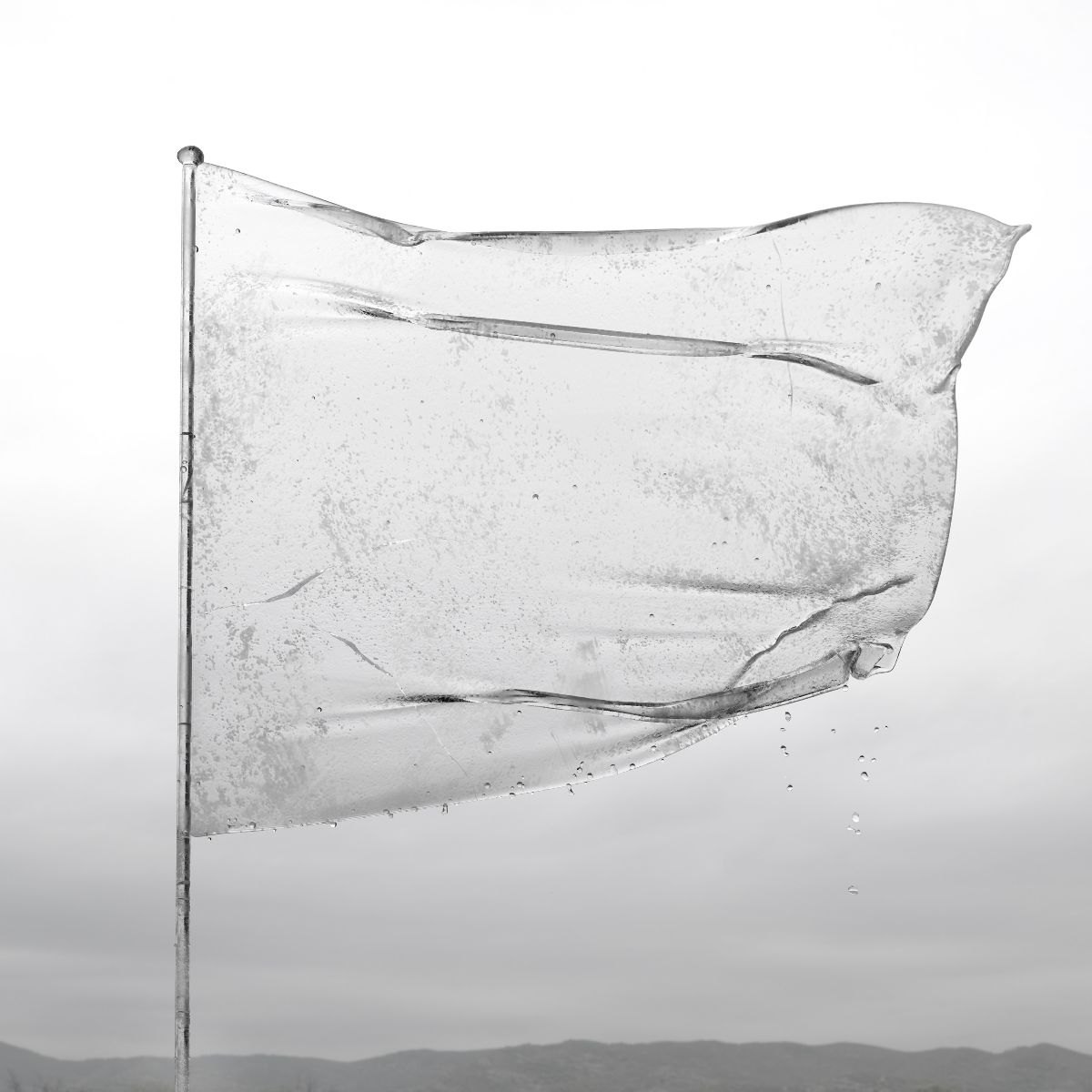

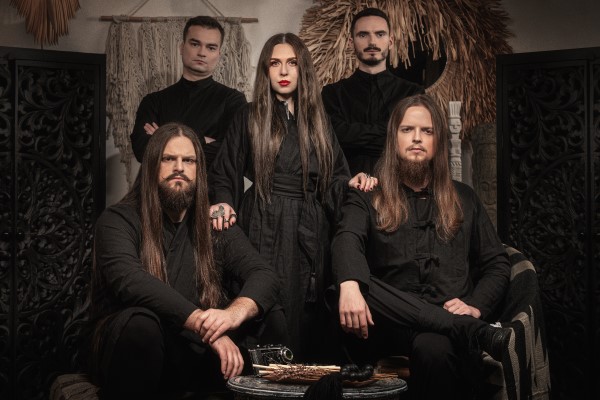 "We try to support our army as much as possible since we also have friends on the frontline." - Helle Bohdanova
"We try to support our army as much as possible since we also have friends on the frontline." - Helle Bohdanova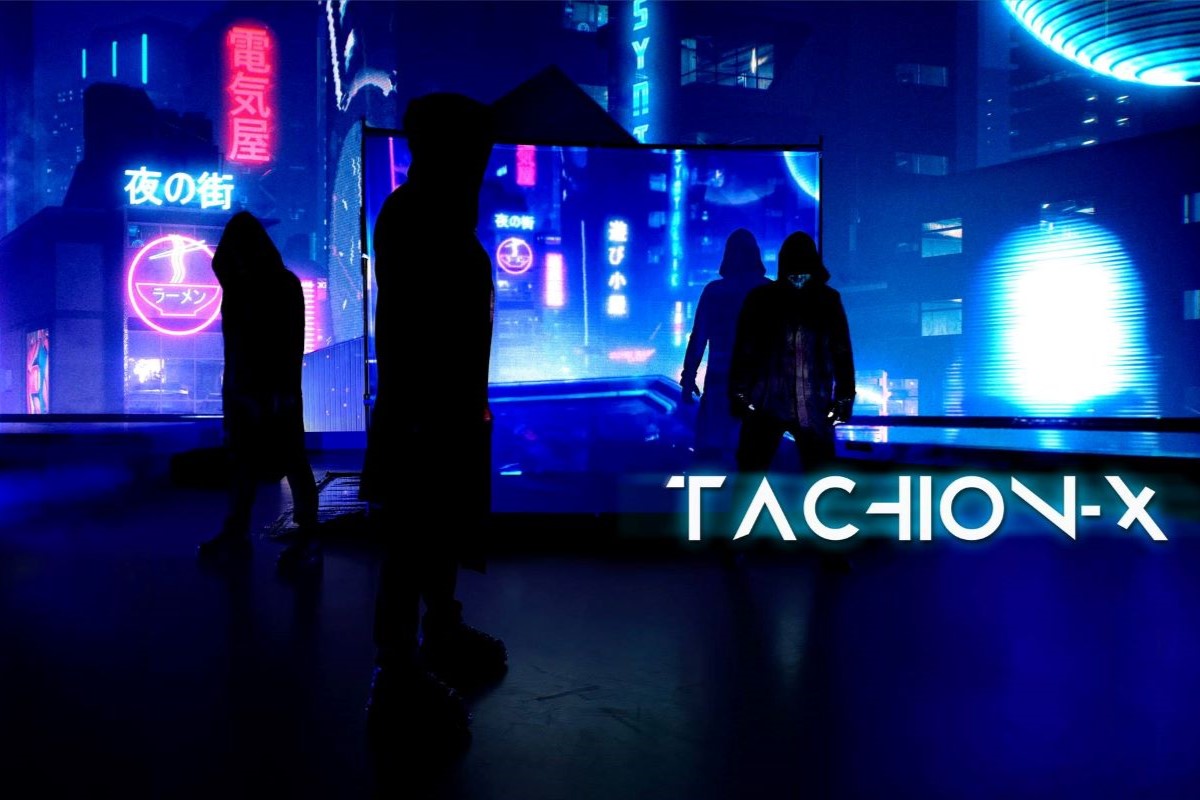 "With this approach, we're in the minority nowadays, but it's precisely this niche and the emotions that were..." - Arkadiusz Wachowicz
"With this approach, we're in the minority nowadays, but it's precisely this niche and the emotions that were..." - Arkadiusz Wachowicz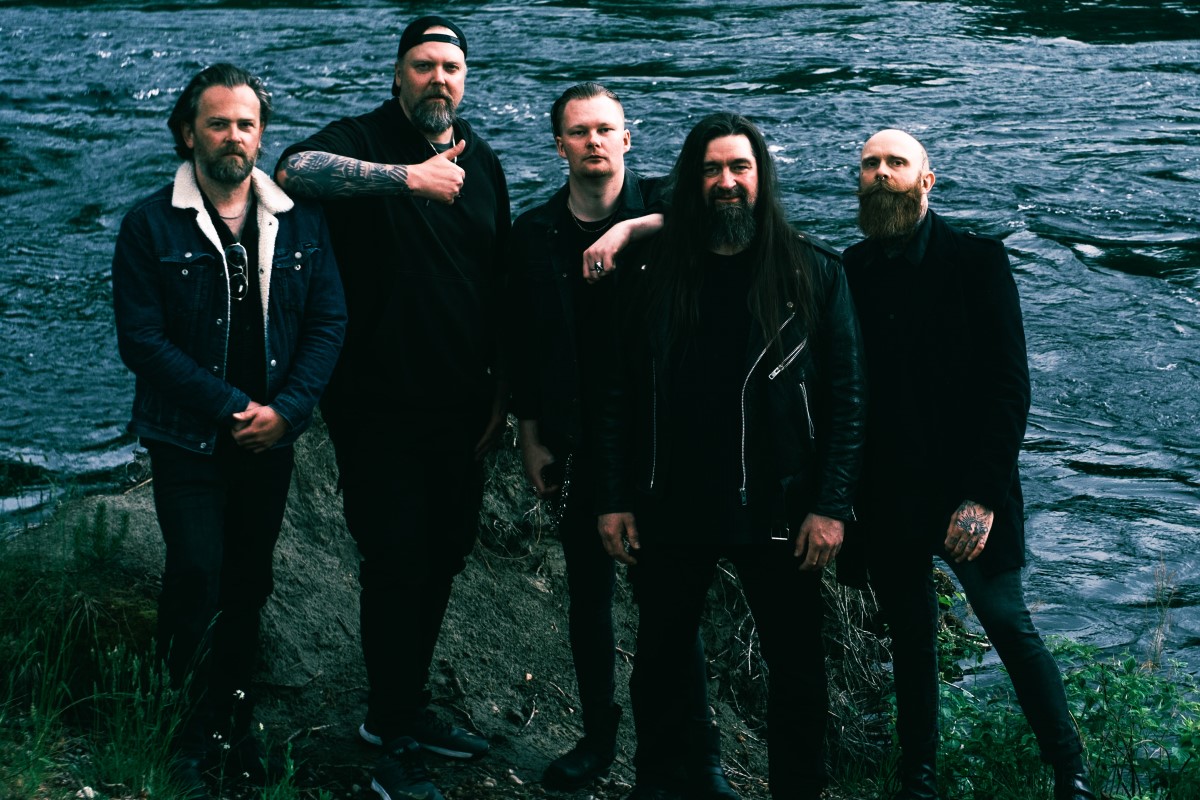 "For my sake, I could just stop playing the old stuff, but on the other hand, I know that our fans want it." - Anders Kobro
"For my sake, I could just stop playing the old stuff, but on the other hand, I know that our fans want it." - Anders Kobro "It would be an exciting thing to be a part of the fourth The Sisters Of Mercy album. I think my role has changed in the last few years." - Ben Christo
"It would be an exciting thing to be a part of the fourth The Sisters Of Mercy album. I think my role has changed in the last few years." - Ben Christo